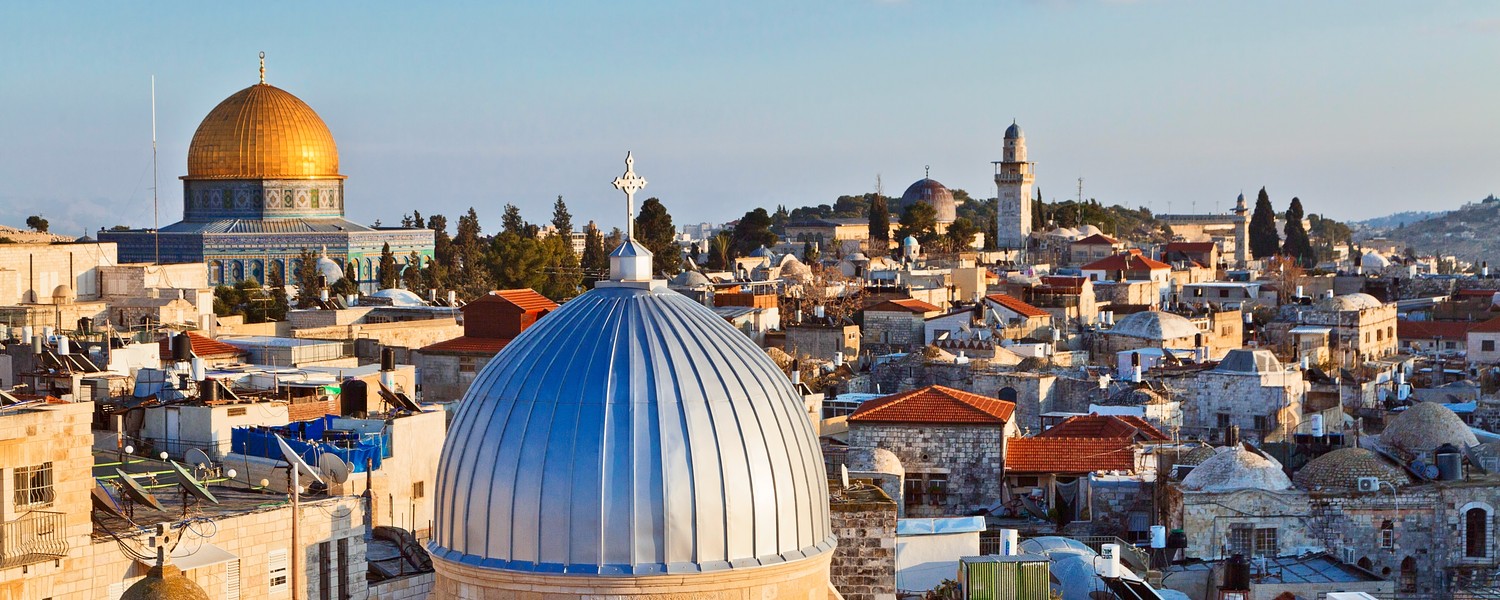
Provided by:
DeltaOFF/Shutterstock.com

Our travel guides are free to read and explore online. If you want to get your own copy, the full travel guide for this destination is available to you offline* to bring along anywhere or print for your trip.
*this will be downloaded as a PDF.Price
€4,95
The City
The guide was updated:
Whether you're trying to grasp its history, contemplate its spirituality, or understand its different cultures, experiencing Jerusalem is a fascinating undertaking. The Old City is Jerusalem's most popular attraction, with an array of religious and historical buildings. However, don't miss the newer districts that started spreading in the 1860s — start with the quarters of Mishkenot Sha'ananim and Nahalat Shiva. For fashion, novelties, and nightlife, head to the Downtown Triangle, between Jaffa Road, King George Street, and Ben Yehuda Street. But be sure to explore further: you will find a bustling cultural scene and lively entertainment throughout the city. A wild, dusty natural landscape surrounds the urban area.
The history of Jerusalem is restless and runs through thousands of years. The Canaanite population settled in the area 6,000+ years ago, near the Gihon Spring. After biblical king David conquered the city, his successor Solomon built a legendary Temple — the shrine was the most sacred place for Jewish people, who developed a strong and tormented connection with the land. Jerusalem then became part of the Roman Empire through a dramatic conquest. The Temple was definitively destroyed in 70 AD during a brutal repression by the emperor Titus. The site of Jesus Christ's death and alleged resurrection, Jerusalem saw the birth of a new religion; it was also the site of an important spiritual journey for Muhammad, the founder of Islam.
During the Crusades and Middle Ages, Jerusalem played a significant role in the region's history, with important orders like the Templar Knights founded there. Since the State of Israel was proclaimed in 1947, a tortuous conflict between the state and the city's previous inhabitants has divided its people.
The history of Jerusalem is restless and runs through thousands of years. The Canaanite population settled in the area 6,000+ years ago, near the Gihon Spring. After biblical king David conquered the city, his successor Solomon built a legendary Temple — the shrine was the most sacred place for Jewish people, who developed a strong and tormented connection with the land. Jerusalem then became part of the Roman Empire through a dramatic conquest. The Temple was definitively destroyed in 70 AD during a brutal repression by the emperor Titus. The site of Jesus Christ's death and alleged resurrection, Jerusalem saw the birth of a new religion; it was also the site of an important spiritual journey for Muhammad, the founder of Islam.
During the Crusades and Middle Ages, Jerusalem played a significant role in the region's history, with important orders like the Templar Knights founded there. Since the State of Israel was proclaimed in 1947, a tortuous conflict between the state and the city's previous inhabitants has divided its people.


